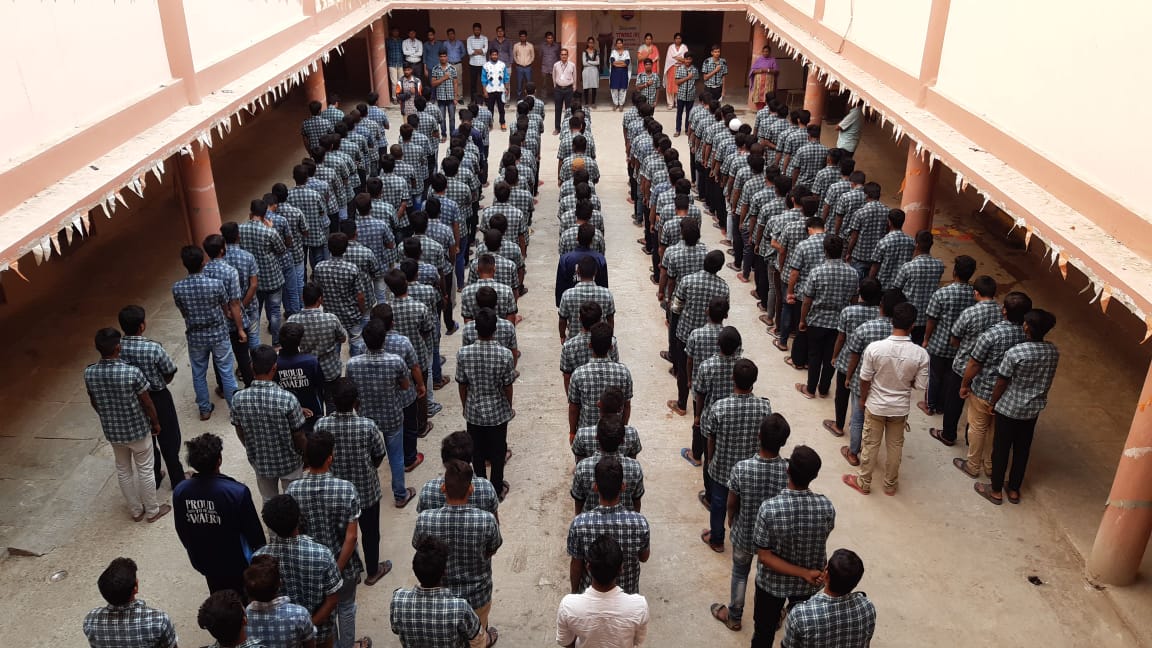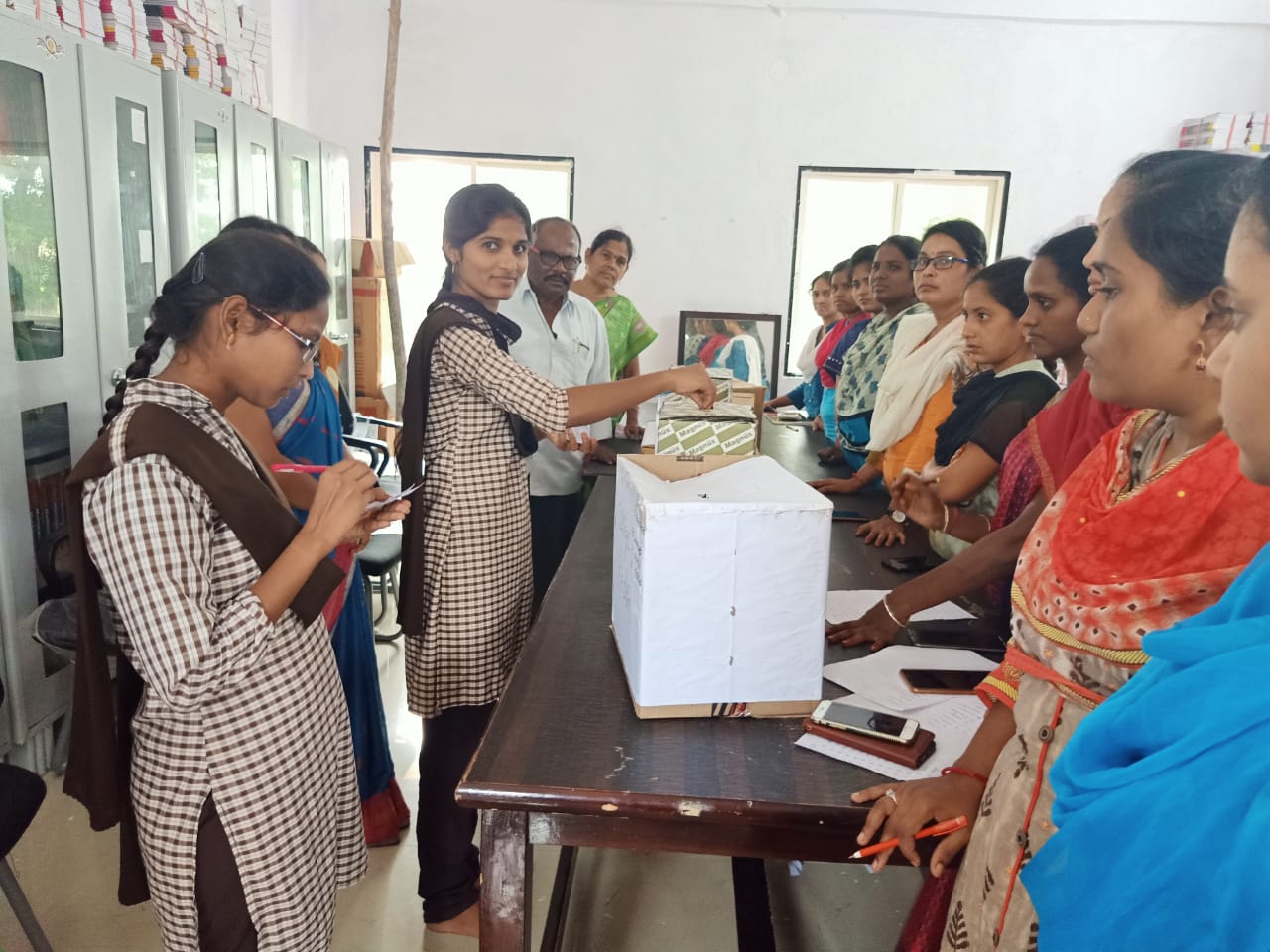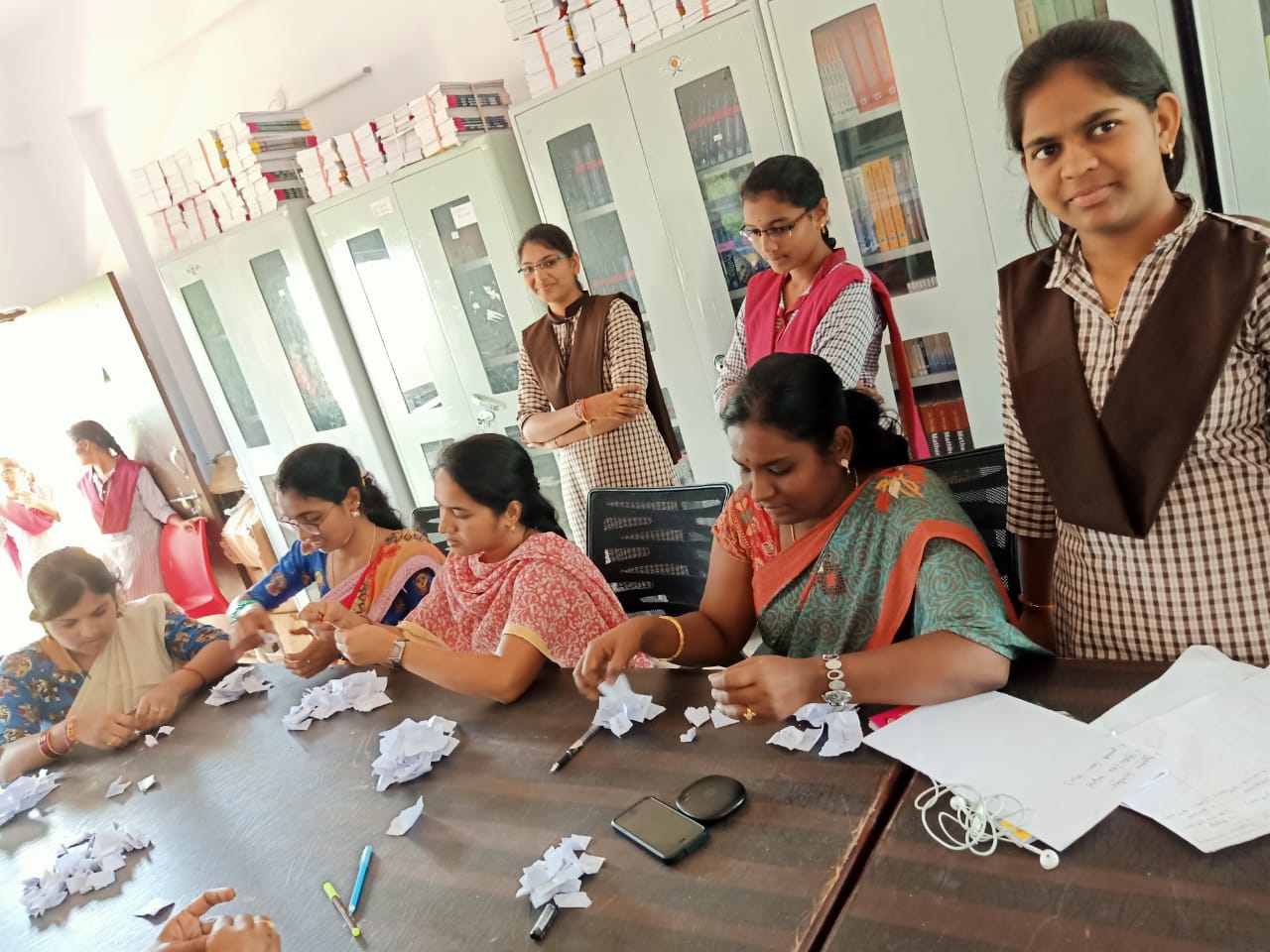Academic Calendar
I SEMESTER- JUNE - NOVEMBER
II SEMESTER – DECEMBER – MAY
Classroom instructions for second year and third year begin from June and for first year begins from July. The academic plan for the undergraduate courses depends upon their concerned universities almanacs. The well-designed Academic calendar not only plans & Schedules a wide range of curricular , co-curricular & extra-curricular activities for the students but also helps to equip them with the required skill-set and prepares them to enhance their potential in various academic & non-academic activities.
MEGA ASSEMBLY


I , III , V SEMESTERS STARTS FROM JUNE
June :
- Commencement of Bridge course for the first year students.
- GNMs train the new residential students on health and hygeine course .
- Induction programme to first year students on residential pattern.
- Formation of clubs and enrolment of the students into various clubs and an orientation on all the club activities for the year.
- General health check-ups of students by Health Supervisor / Staff Nurse' of the colleges.
- An orientation programme on conducting swachch Saturdays in campuses.
July:
- Haritha haram is observed and saplings are planted in the institutions.
- College & district level screening of super students.
- College council election follows the due procedure :
- Filling of nominations for College Council.
- Scrutiny of nominations, display of final list by Principal and Staff.
- Election to the College Council
- Declaration of results of the Election.
- Investiture Ceremony and Press conference


August:
- Cultural competitions on the eve of Independence day celebrations.
- Commencements of super students live programmes on T-SAT for S.R. Sankaran Super Student's trophy .
September:
- Completion and revision of syllabus.
- Updates on important dates and information on entrance examinations such as JAM, CUCET, POLYCET, other entrances of deemed institutions & on Job opportunities with necessary coaching and guidance to final year students through CGC of the institutions.
- Industrial and Botanical tours for the respective students of the science and commerce groups.
- Intensive coaching for the selected teams of the colleges for college-level games, sports federation and TTWR Institutions district level and University level sports and games tournaments .
- Elocution, essay writing and quiz competitions on the occasion of the International LITERACY day.
- Local field trips to collect specimens by BZC & MZC Students in 4 groups on different days for preparation of herbarium under supervision of principal and degree lecturers.
- Review on the academic performance of the students at the end of the month by the Principal, Vice Principal.
October:
- Planning and preparation of eligible students to appear for University sports.
- Action plan and implementation to improve the standards of the students based on their performance in the first and second internal assessments.
- Special emphasis on future learners and measures for remedial teaching.
- Conduction of computer classes to non-Computer group students
- Second spell recording of height and weight of the students by the Physical Education Lecturers.
- Conducting Live teaching competitions of super students on T-SAT and other programmes as per schedule.
- National & state wide job notification information update to the final year students.
- QUEST Programme should be taken up by teaching staff and visit at least two houses of the students during I-term holidays.
November:
- Special emphasis on future learners and measures for remedial coaching and conducting slip tests.
- Correction of practical records.
- Review and revision of difficult concepts.
- Conduction of Practical and Pre-final Examinations
- Preparing the students for the Semester Examinations.
- To promote reading habits, organizing book exhibition by the librarian in connection with the Library Week Celebrations.
- Conducting Live teaching competitions of super students on T-SAT and other programmes as per schedule.
- Review on games and sports activities for the preparation of Zonal and State Level tournaments.
- Guest lectures may be arranged on personality development to boost up students for final examinations.
DEPENDING ON THE UNIVERSITIES ALMANAC I, III , V SEMESTER EXAMS MAY BE CONDUCTED BETWEEN NOVEMBER TO DECEMBER.
II , IV , VI SEMESTERS START FROM DECEMBER
December:
- Celebration of Mathematics Day.
- Submission of College Magazine.
- Preparation of schedule of the coming semesters 2, 4, 6
- Commencement of classes for the semester 2, 4 & 6
January:
- Commencement of the classes for the New Semesters II, IV, VI.
- Implementation of new time table for new semester.
- 3rd spell recording of the height and weight of the students .
- II term holidays (PONGAL)
- QUEST Programme by the staff must be reported to DDO/RCO .
- Super nova celebrations.
- Re-opening day after Pongal vacation there will be review of Pre Final exams results..
- Preparing the students for the Internal exams.
- Review of the Health cards of the students and necessary measures to taken up for students suffering from chronic diseases.
- Regular counseling sessions for students by their house parents through out the semesters.
February:
- Class instructions include flipped class rooms and digital teaching forming a blended learning environment.
- Career Counseling by the librarians and staff to the outgoing students of the college.
- Results Analysis and review of 1, 3, 5 Semester examinations.
March:
- Completion of the syllabus as per the division
- Preparing students for the internal examinations.
- Conducting of the internal exams - II
- Identification of future learners based on the performance in the internals and taking up remedial teaching until they reach expected levels.
- Conduct of club activities as per the schedule.
- In girls' colleges, awareness programme should be conducted on the role of women in the development of the society.
- Selection of students for various Summer Camps.
April:
- Special emphasis will be laid on future learners and measures may be taken up for remedial coaching and conducting slip tests.
- Evaluation of practical records and conducting of Practical Examinations.
- Review and revision of difficult concepts.
- Conducting of Pre-final Examinations.
- Preparing the students for the Semester Examinations.
- Revision of the entire syllabus for the Semester Examinations
- Conduct of visual arts / literary camp.
- Career counseling for final year students about higher education and jobs by CGC.
May:
- Preparing students for exams as per the university schedule
Examinations:
Continuous formative and summative assessments by the subject faculty makes students free from exam fear and thorough about what they learned.
- Examinations will be in a systematic approach in institutional level :
- weekly slip tests.
- Monthly Assignments.
- Pre finals
- Pre practical exaxms.
Internal exams will be conducted as per their concerned universities almanac.
For I, III, V semesters
- Internal exams - I held in August
- Internal exams - II held in October
- Practical exams
For II , IV , VI semestetrs
- Internal exams - I held in February
- Internal exams - II held in March
- practical exams.
Clubs:
-
Clubs help students to explore interests of their choice.
-
There are around 8 clubs Literary club , Music and dance Club ,Creative Club , Theatre Club , STEMS club , Commerce Club , Community Out Reach, Enterpreneur Cell.
-
Every saturday afternoon slot is allotted for Club activities.
-
Every month one of the clubs showcase their activities .
E-Plus club:
- The E-Plus Club functions with an intention to provide students a take-off point to the world of English. This creates opportunities to enhance their taste in reading, equip them with a sense of appreciation of literary expressions and their scope to speak in English fluently. These activities in the E-Plus Club aspire to nurture and enhance the literary and creative skills of students, if they are conducted in a regular and serious manner by all the stake holders, i.e., the Principals, ttrainings and the students.
CGC:
- The Career Guidance Cell has been catering to the needs of students with the following objectives: To conduct a survey among students on their career options. To organize programmes to create awareness about the importance of higher studies in India and Abroad. To organize coaching classes on CAT, TOEFL, GRE etc.
- our main motto is to make students aware about EEE.
- Education
- Employment
- Entrepreneurship
- Timetable is followed for the CGC sessions.
| Month | Working Days |
|---|---|
| June - 2021 | 22 |
| July - 2021 | 21 |
| August - 2021 | 19 |
| September -2021 | 22 |
| October - 2021 | 18 |
| November - 2021 | 20 |
| December - 2021 | 22 |
| January - 2022 | 20 |
| February - 2022 | 20 |
| March - 2022 | 22 |
| April - 2022 | 22 |
| May - 2022 | 18 |
| Total | 246 |
Holidays in Academic year 2021-22
- I Term – Dussehra - 15 days
- Christmas - 25-12-2021 to 26-12-2021 - 2 days
- II Term – Pongal – 08-01-2022 to 16-01-2022 - 5 days

